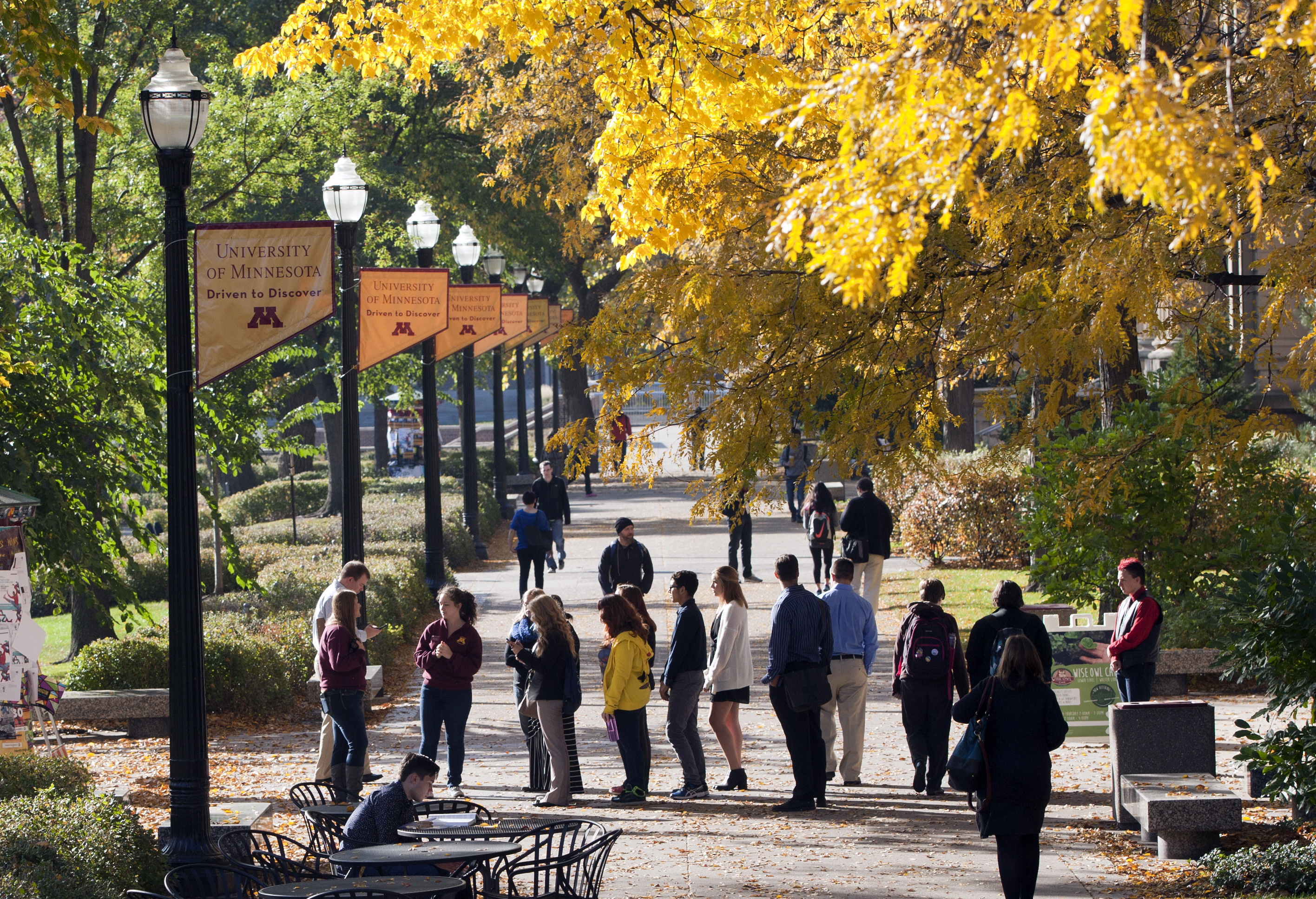U of M makes a ‘bold’ ask of lawmakers: $400m in extra funding through ‘25

When it comes to receiving a piece of the state’s projected budget surplus, the University of Minnesota is giving it the old college try.
On Tuesday, the House Higher Education Finance and Policy Committee received a request from the university for $400 million in additional funding through fiscal year 2025, including $250 million in fiscal year 2023, and $75 million in fiscal years 2024 and 2025.
This is in addition to the university’s bonding request of $685.6 million for the design, construction and rehabilitation of facilities.
“We know that this is bold,” University of Minnesota President Joan Gabel told the committee. “It’s a big and unique ask during a unique time. But it’s all tied to the way in which we are committed to serving the state at top-notch levels. And if not now, when? This is the time to really think about refreshing the strategic link between the state and the university.”
Of the fiscal year 2023 total, the money would fall into three categories: campus safety, sustainable energy use and financial aid.
The university is asking for $100 million for safety and security, with the money earmarked for a larger security and police presence on the Twin Cities campus; enhancing building access control and video surveillance across the university system; and increased cybersecurity.
The sustainability piece of its request comes to $85 million. The university wants to use $75 million of that to implement more on-campus solar electricity generation; install geothermal heating and cooling infrastructure; and convert from steam to hot water systems. It would also be used to continue the conversion of the university’s fleet to electric vehicles.
Also falling into the sustainability category would be $10 million for its Natural Resources and Research Institute for expanded laboratory space in Duluth and a new mineral processing and metallurgy facility in Coleraine.
The university’s request for expanding financial aid opportunities for students comes to $65 million annually for fiscal years 2023, ’24 and ’25. Of that annual total, $30 million would go toward supporting the Promise Program for students with financial need by increasing the number and size of grants. Another $30 million would create a new Greater Minnesota Scholarship to attract and retain students at the university’s campuses in Duluth, Morris, Crookston and Rochester. The final $5 million would focus upon accelerating degree progress, i.e. helping students graduate in four years or less.
Rep. Marion O'Neill (R-Maple Lake) is dismayed at the size of the request, citing Gabel’s recent contract extension that raised her salary and other compensation to a potential $1.2 million by fiscal year 2026 while the university is raising tuition and eliminating sports teams.
But Rep. Ginny Klevorn (DFL-Plymouth) feels differently.
“The piece that we always leave out of that conversation is what do these dollars generate?” she said. “When we make these investments and bring forward these innovations for our state, these dollars multiply multiple times.”
Related Articles
Search Session Daily
Advanced Search OptionsPriority Dailies
Speaker Emerita Melissa Hortman, husband killed in attack
By HPIS Staff House Speaker Emerita Melissa Hortman (DFL-Brooklyn Park) and her husband, Mark, were fatally shot in their home early Saturday morning.
Gov. Tim Walz announced the news dur...
House Speaker Emerita Melissa Hortman (DFL-Brooklyn Park) and her husband, Mark, were fatally shot in their home early Saturday morning.
Gov. Tim Walz announced the news dur...
Lawmakers deliver budget bills to governor's desk in one-day special session
By Mike Cook About that talk of needing all 21 hours left in a legislative day to complete a special session?
House members were more than up to the challenge Monday. Beginning at 10 a.m...
About that talk of needing all 21 hours left in a legislative day to complete a special session?
House members were more than up to the challenge Monday. Beginning at 10 a.m...